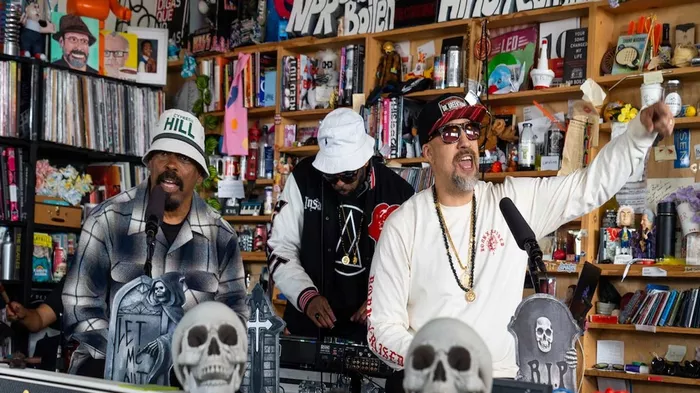Hip hop music has transcended cultural boundaries and left an indelible mark on the global music landscape. Since its inception in the South Bronx in the 1970s, hip hop has evolved, grown, and at times, dominated the music industry. In this article, we will explore the various eras in hip hop’s history and delve into when hip hop music was most popular, tracing its rise from the streets to the mainstream.
The Birth of Hip Hop Music
The roots of hip hop music can be traced back to the early 1970s in New York City. It emerged as a cultural movement in African American and Latino communities in the Bronx, where DJs and MCs (Master of Ceremonies) began experimenting with beats and rhymes. Hip hop music, at this point, was primarily a localized phenomenon, with block parties and neighborhood gatherings serving as its breeding ground. It was an underground movement, far from the mainstream spotlight.
Hip Hop’s Golden Era
The 1980s marked a significant turning point for hip hop music. It was during this period that hip hop began to gain recognition beyond its grassroots origins. Artists like Run-D.M.C., LL Cool J, and the Beastie Boys emerged, taking hip hop to a wider audience. Their groundbreaking albums and distinctive styles helped hip hop music find its place in the broader music landscape.
The music videos of these artists on platforms like MTV also played a pivotal role in popularizing hip hop. The visual aspect of hip hop became just as important as the music itself, contributing to its growing popularity.
The Rise of Gangsta Rap
The late 1980s and early 1990s saw the rise of gangsta rap, a subgenre of hip hop music characterized by its gritty lyrics and portrayal of street life. Artists like N.W.A., Ice-T, and Tupac Shakur became synonymous with this subgenre, using their music to address issues like violence, poverty, and police brutality. Gangsta rap, despite its controversy, played a significant role in bringing hip hop music to the forefront of popular culture.
During this period, hip hop music faced backlash from various quarters due to its explicit content. However, this controversy only fueled its popularity further, as it became a form of expression for marginalized communities and a platform for addressing societal issues.
Hip Hop Goes Mainstream
The mid-1990s witnessed hip hop’s transformation from a subculture to a mainstream cultural force. Artists like The Notorious B.I.G., Dr. Dre, and Snoop Dogg achieved massive commercial success, and hip hop music began to dominate the charts. The fusion of hip hop with other genres, such as R&B and pop, resulted in crossover hits that appealed to a broader audience.
The release of Dr. Dre’s album “The Chronic” in 1992 and The Notorious B.I.G.’s “Ready to Die” in 1994 were watershed moments for hip hop music. These albums showcased the genre’s storytelling abilities and musical diversity, solidifying its place in the mainstream.
Hip Hop in the New Millennium
As we entered the new millennium, hip hop music continued to evolve. The rise of independent labels and the internet allowed artists to reach their audience directly, bypassing traditional gatekeepers. This democratization of music production and distribution led to a proliferation of hip hop subgenres and regional scenes.
Artists like Eminem, Jay-Z, and Kanye West achieved global superstardom during this period. They brought innovation to hip hop, pushing the boundaries of lyricism, production, and storytelling. Hip hop music also embraced social and political issues, with artists like Common, Mos Def, and Kendrick Lamar using their platform to address topics like racism, inequality, and the criminal justice system.
The Streaming Era and Hip Hop’s Dominance
The advent of streaming services in the 2010s had a profound impact on the music industry, and hip hop was at the forefront of this revolution. With the ability to instantly access and share music, hip hop songs and albums consistently topped streaming charts. Artists like Drake, Travis Scott, and Cardi B became streaming giants, accumulating billions of plays on platforms like Spotify and Apple Music.
The streaming era also blurred the lines between hip hop and other genres, leading to collaborations and genre-blending projects. Hip hop music was no longer confined to a single sound; it became a versatile and dynamic genre that could incorporate elements of rock, electronic music, and more.
The Influence of Hip Hop Beyond Music
Hip hop’s impact transcends music; it has permeated fashion, art, and even politics. The fashion world embraced hip hop’s style, with baggy pants, sneakers, and streetwear becoming mainstream trends. Graffiti art, a visual element closely associated with hip hop culture, gained recognition in the art world.
Furthermore, hip hop became a potent tool for political and social commentary. Artists like Public Enemy and N.W.A. used their music to address racial inequality and police brutality. Hip hop’s influence on politics can be seen in the rise of hip hop activists and even the involvement of hip hop artists in political campaigns.
Conclusion
As we reflect on when hip hop music was most popular, it’s clear that its popularity has never waned. From its humble beginnings in the Bronx to its global dominance today, hip hop has consistently evolved and adapted to the changing musical landscape.
With its ability to reflect the realities of marginalized communities, challenge the status quo, and provide a platform for self-expression, hip hop remains a powerful cultural force. It has not only shaped the music industry but has also influenced society at large.
In conclusion, hip hop music’s journey from the underground to the mainstream is a testament to its resilience and cultural significance. It has transcended boundaries and continues to evolve, ensuring its place as one of the most influential music genres of our time. Whether it’s through its beats, rhymes, fashion, or activism, hip hop’s impact on our world is undeniable, making it a genre that will undoubtedly remain popular for years to come.

